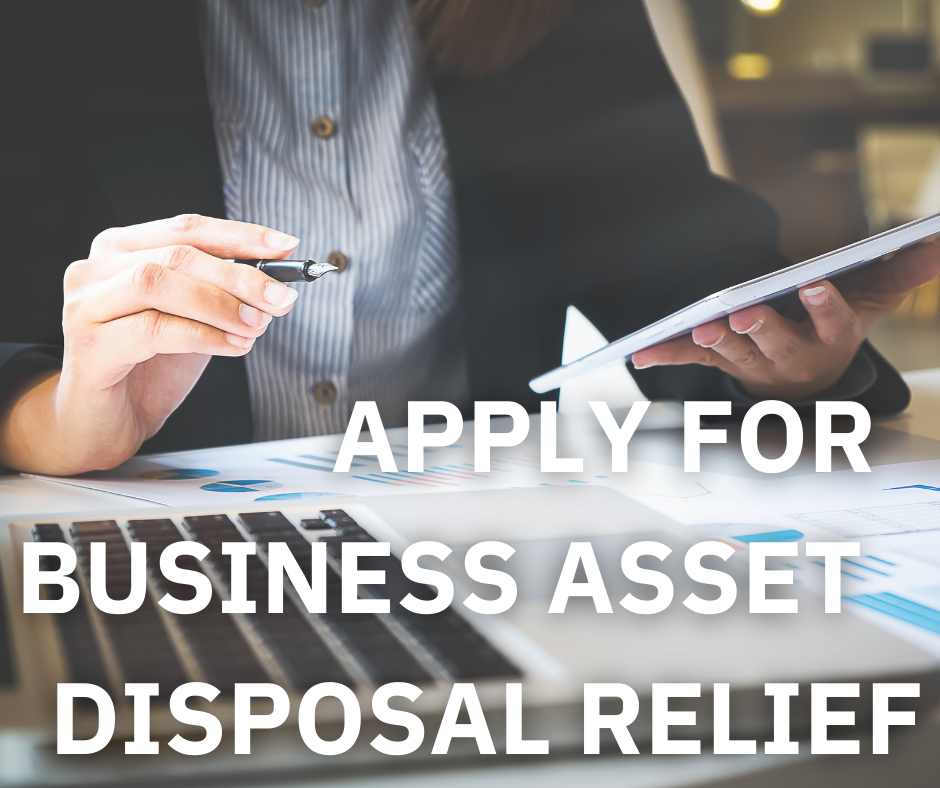Failure to pay your business taxes on time will result in heavy penalties; HMRC (HM Revenue and Customs) will charge your business with a penalty including interest as well. For example, if your business has failed to pay £10,000 at the end of 30 days, HMRC will proceed to charge your business 5% of the amount owed. 30 days of interest is charged at 2.75% APR is also included, you now owe a total of £10,552.50.
Your business must comply with a variety of tax duties, but there are also a number of tax reliefs available to you that you can take advantage of.
Entrepreneurs' Relief was replaced by the BADR (Business Asset Disposal Relief) by the Finance Act in 2020. This tax relief was introduced as a way to incentivise business owners to invest in their businesses.
How does BADR work?
This particular tax relief is intended to encourage business owners to expand their businesses. This specific tax relief was introduced to allow businesses to pay less in Capital Gains Tax when disposing of business assets.
BADR must be claimed by the first anniversary of 31 January following the tax year of disposal. For example, if the disposal is made during the 2022-23 tax year a BADR claim must be made by 31 January 2025.
Individuals who dispose of eligible company assets pay a 10% Capital Gains Tax under BADR. The rate of CGT will be lowered from 20% to just 10% for those who are considered higher rate taxpayers.
You should also be aware of the lifetime limit which is currently set at £1,000,000. Keep track of any claims you make and use this information to ensure you don't go over the lifetime limit. If you have exceeded the £1 million limit, the amount of Capital Gains Tax will be applied at the standard rate (this is dependent on your overall annual income
Is my business eligible?
BADR applies to a number of businesses, you are eligible if your business operates as a:
- Sole Trader - A sole tradership, also known as an individual entrepreneur or proprietorship, is a type of business owned and operated by a single person with no legal distinction between the owner and the business;
- Partnership - There are numerous types of partnerships but partnerships commonly refer to a business that is managed by two or more partners;
- Limited Company - A limited company is a type of business organisation in which the assets and revenue of the owners are separate and distinct from the assets and income of the firm;
- Joint Ventures - A commercial venture in which two or more parties work together but maintain their own identities;
- Trust - A trust is a legal entity in which a trustee manages the affairs of the trust's members. A trust is not a legal entity in its own right.
BADR is only available to people who own a business or have stock in a company. Because it does not apply to all businesses, a company cannot use BADR to seek relief.
It also only applies to qualifying asset disposals from the business. BADR can only be utilised by trading businesses and cannot be used to sell investment assets.
In addition to this, BADR is not available to corporate bodies, such as businesses, and due to the fact that the tax relief is only applicable to business assets, BADR will not be available to taxpayers selling investment assets.
Managing multiple business taxes can be quite an overwhelming task even for well-established businesses so we understand how pressing this may be for smaller businesses. Persona Finance will provide you with remote accounting services so that you can focus on running your business.
Contact Persona Finance now at [enquiries@personafinance.co.uk] for more information on how to file for BADR or for other business and accounting queries.



